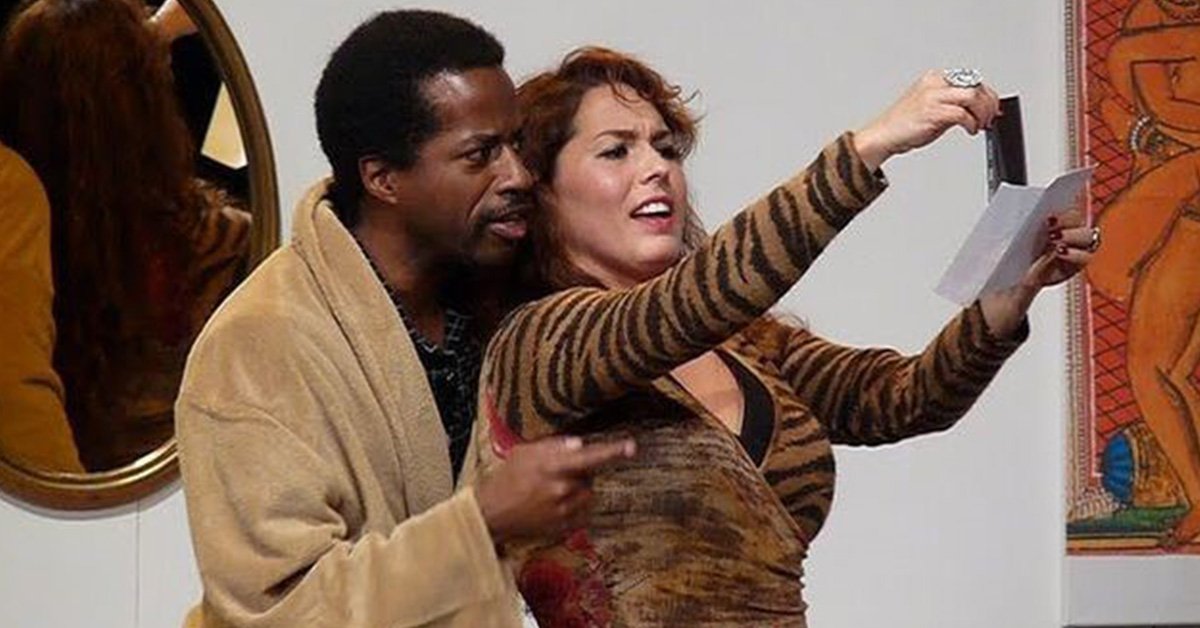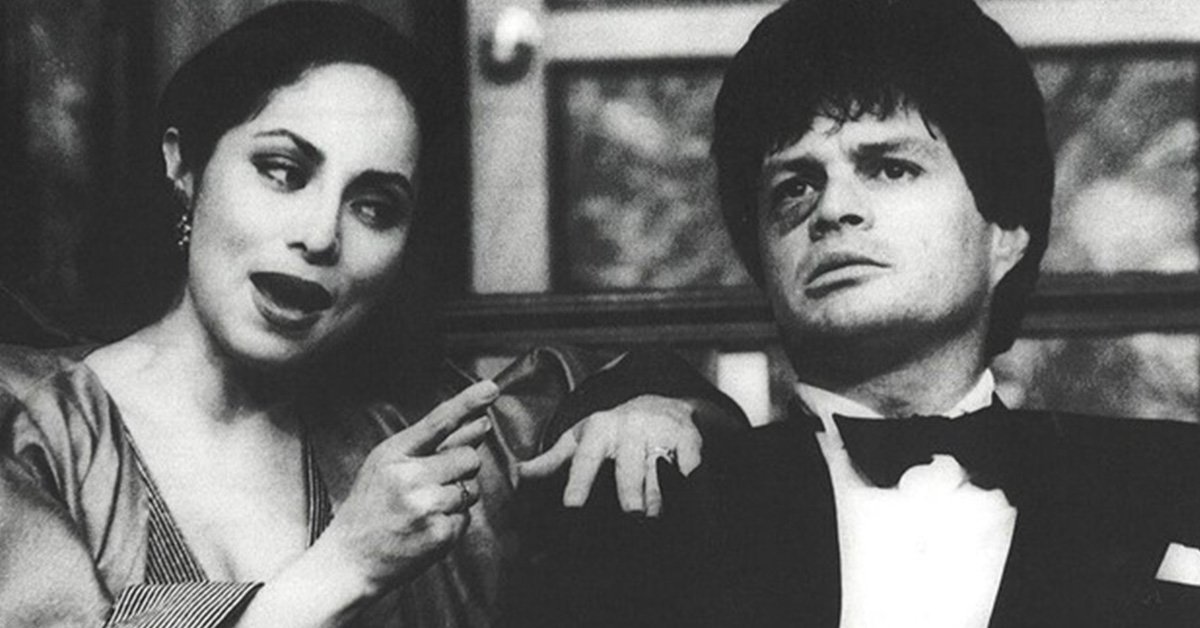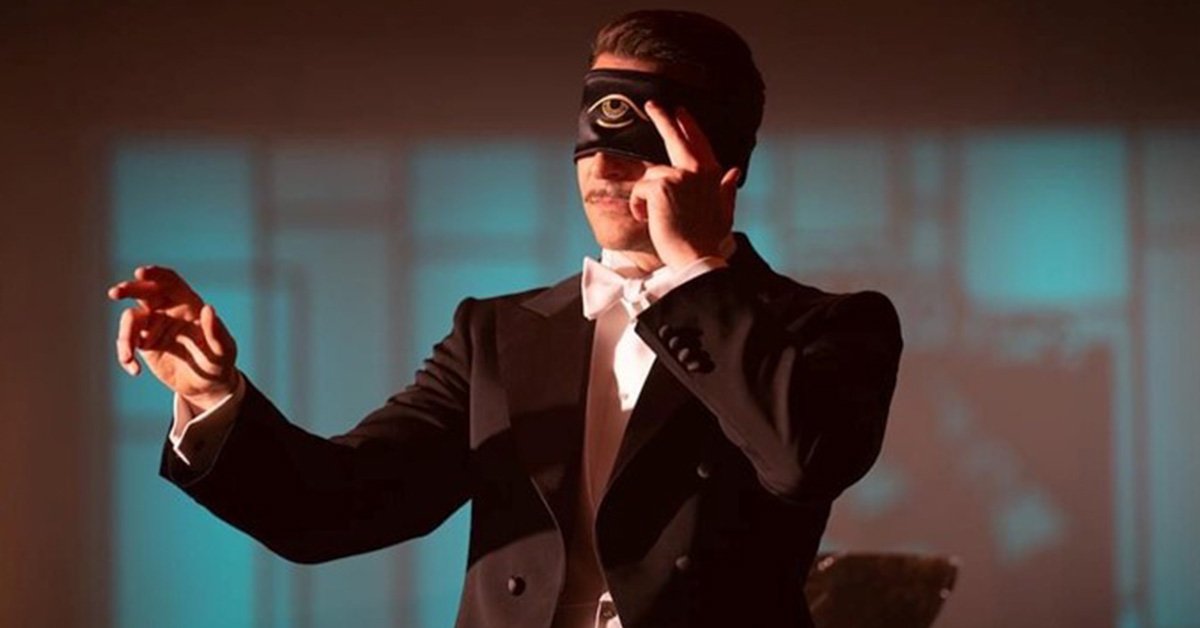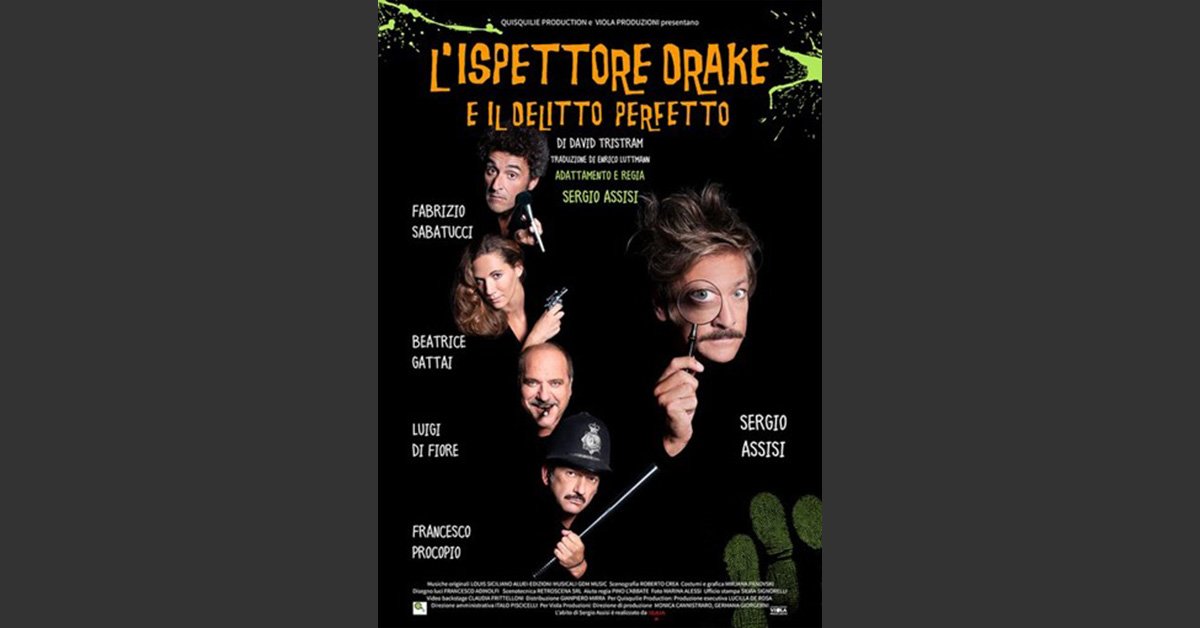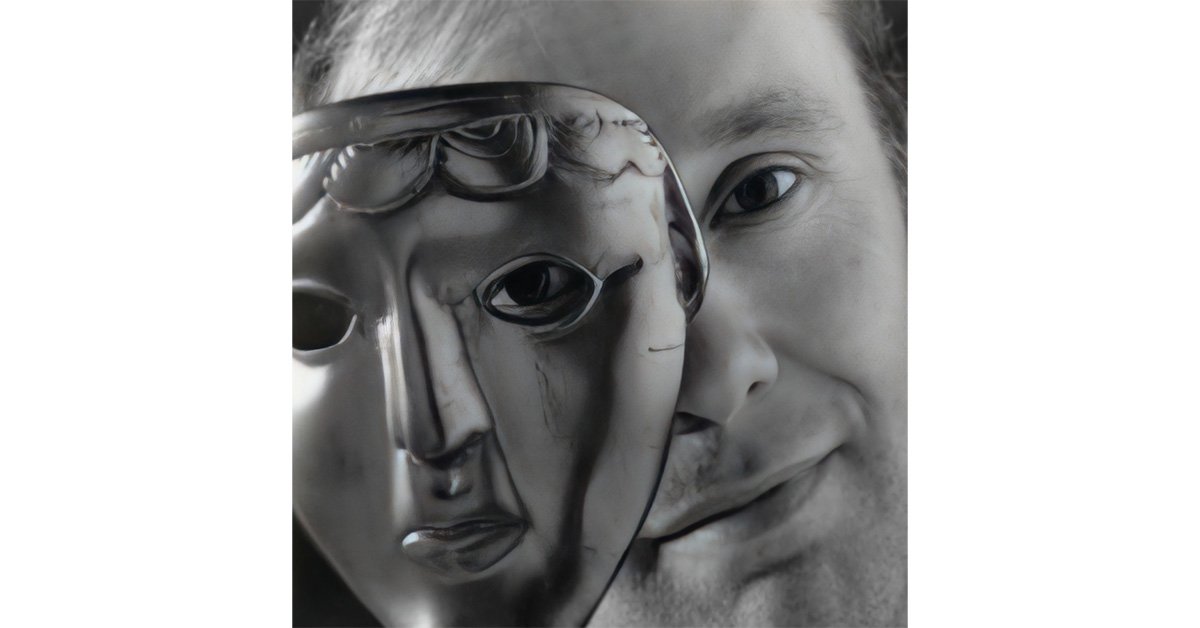
Over a long career, David Tristram has established himself as one of the UK’s most popular playwrights – in fact, his comedies have now been performed more than 10,000 times by professional and amateur companies all over the world. To put that in context, it means that for the past 30 years or so, on average, someone somewhere in the world has been performing a David Tristram play every single night.
”It’s an interesting milestone,” quipped David, “which can only be achieved if you’re either quite successful, or, as in my case, very old.”
We caught up with the man behind the mask to find out more.
…
Your Little Grimley series had become a hit with the amateur societies all over the world. What drew you to come up with the Little Grimley Amateur Dramatic Society? Were the characters from the Society based on any real-life characters?
I usually find that my most potent comedy comes from real life and yes, the Little Grimley characters are amalgams of real people who I think we’ve probably all met before. Many years ago I sat on an amateur theatre committee in my home town, and all the ingredients were right there. Just add a tiny sprinkling of exaggeration to heighten the conflict, and bring to the boil. I deliberately made the Little Grimley plays (UK) very easy to stage, so all the emphasis was on the characters – and characterisation is at the heart of comedy. Yes, I obviously hoped the plays would prove to be popular, but the way amateur societies have embraced the series has been quite phenomenal.
2010 Basel, Switzerland Production of Unoriginal Sin (Courtesy of David Tristram)
You’ve currently published 29 comedies. Do you have a favourite play?
I’m not allowed to have favourites – it’s like parents having favourite kids. Obviously broad comedies like the Little Grimley and Inspector Drake series have been hugely popular, but it’s also great to see some of my more challenging work being tackled by amateur societies as well as the pros – plays like Hypnosis (US/UK), Going Green (US/UK), Ghost Writer (US/UK), Searching for Doctor Branovic (US/UK), Forget-me-Knot (UK), The Secret Lives of Henry and Alice (UK), A Bolt from the Blue (UK) and so on – they all demand high standards of creativity, inventive staging and challenging acting roles, which combine comedy with genuine serious drama and some bittersweet moments. I like to visit productions whenever I can, and I never fail to be amazed by some of the talent that’s on show at amateur level, and the immense care and pride they take in their work.
2011 Ankara, Turkey Production of The Secret Lives of Henry and Alice (Courtesy of David Tristram)
Would you consider a crossover between the Little Grimley Amateur Dramatic Society and the iconic crime-solving duo Inspector Drake and Sergeant Plod?
That may be a bridge too far, but I suppose I’ve already covered the shared ground with my latest one-act play Murder in Little Grimley (US/UK). Hopefully it’s not treading on Inspector Drake’s toes too much, but I decided on that occasion to call in a different detective.
1996 Mexico City, Mexico Production of The Opposite Sex (Courtesy of David Tristram)
What did you do during lockdown?
I wrote a play called Lockdown in Little Grimley (US/UK). ! It re-ignited my interest in the Little Grimley series, and writing for theatre in general.
I also created an online School of Comedy aimed at amateur actors and directors, and tried to build in a lifetime of experience into something which was fun to watch. It was many hours of work – creating around six hours of video lessons. I would never have found time to do it under normal circumstances, so at least some good came of that torrid time. I had some fantastic feedback from students as well, which is always gratifying.
2022 Melbourne, Australia Production of Hypnosis (Courtesy of David Tristram)
Lockdown in Little Grimley ends in a hopeful note. Do you have any hopes or thoughts on theatres in the future?
Well, like all of us, I hope that theatre in general won’t be permanently scarred by the recent lockdowns, but in particular I hope that grassroots theatre at amateur level will be able to survive and thrive. I also passionately believe that comedy, which has always been at the centre of my work, is not some sort of fluffy luxury – it’s a precious, vital commodity, essential to a balanced society’s mental well-being, and we lose it at our peril.
What’s next for you?
In a sense it’s back to my roots – back to writing for theatre. For the past ten years or so I’d taken a break from writing plays to concentrate on inventing and developing a professional comedy character called Doreen Tipton, who became highly popular in the Black Country area and beyond. I was creating social media videos, producing touring live shows, DVDs, merchandise, ghost-writing biographies and children’s books – I even wrote and produced a full-length movie for her, featuring Led Zeppelin rock legend Robert Plant. The character won What’s On awards, and had millions of online fans. But, I’ve now given Doreen a well-earned rest, so I’m looking forward to getting back to writing plays and – who knows – clocking up another 10,000 performances. I’m also in advanced talks about bringing one of my plays to the professional stage in the UK at a very high level – so that’s exciting.
2017 Rome, Italy Production of Inspector Drake and the Perfekt Crime (Courtesy of David Tristram)
What advice would you have for companies looking to stage your titles in future?
Just do it. Your audiences will thank you.
Throughout my career I’ve been a producer/director as well as a writer, so I’ve always made sure that all of my plays are eminently practical to stage – there’s no need for complex scene changes or a cast of thousands. And all the scripts have been thoroughly tested in front of live audiences, so you can look forward to the sort of response that makes all the hard work worthwhile.
…
For more information about licensing Hypnosis, Going Green, the Little Grimley series and other works by David Tristram, visit Concord Theatricals in the US or UK.

Comedy Mysteries: Gasps, Laughs and Thrills

A Children’s Theatre Classic: An Interview with Snow White And The Seven Dwarfs Composer Michael Valenti


